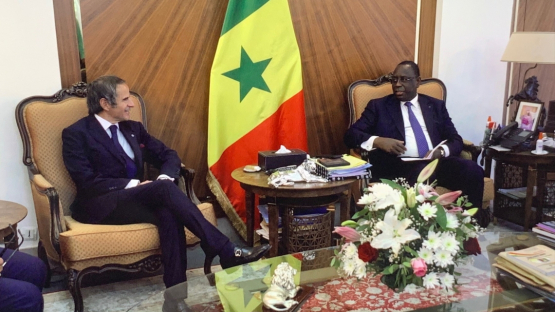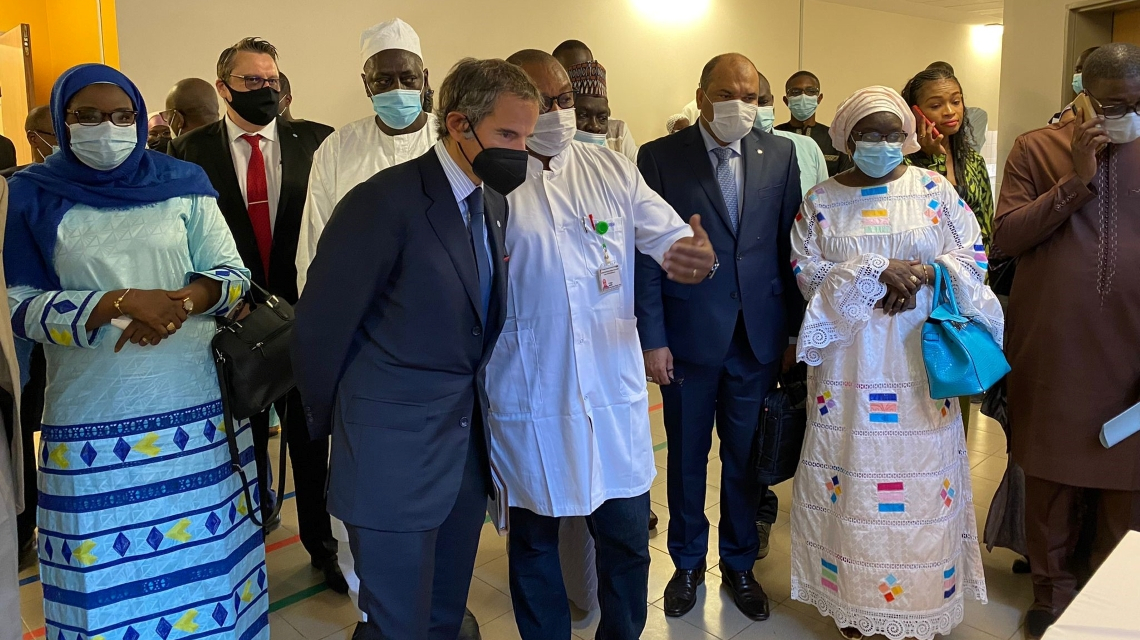Senegal is strengthening its ability to respond to pandemics and building its capacity to fight cancer with IAEA support, Director General Rafael Mariano Grossi said during his visit to Dakar yesterday. In his meeting with President Macky Sall, Minister of Foreign Affairs and Senegalese Abroad Aïssata Tall Sall, and Minister of Higher Education, Research and Innovation Cheikh Oumar Anne, he discussed increased cooperation under the Zoonotic Disease Integrated Action (ZODIAC) initiative, which seeks to help countries respond to future pandemics, and Rays of Hope, an upcoming initiative to increase access to cancer care in Africa.
“Senegal has shown time and time again that it values the benefits nuclear science, and its applications can bring to improving people’s health and livelihoods,” Mr Grossi told President Sall. “The IAEA will continue to offer its support to Senegal, and we look forward to working together closely.”
Senegal has been an IAEA Member State since 1960 and works closely with the IAEA on issues ranging from healthcare to energy development and agriculture. Since May 2020, the IAEA has provided Senegal with training and testing equipment using real time reverse transcription–polymerase chain reaction (real time RT–PCR) to help combat the COVID-19 pandemic.
At his meeting with Amadou Alpha Sall, Director of the Institut Pasteur de Dakar (IPD), Mr Grossi discussed ways to enhance Senegal’s laboratories to detect and monitor zoonotic diseases and signed an agreement to strengthen Senegal’s cooperation under ZODIAC. This will elaborate on previous initiatives such as the Veterinary Diagnostic Laboratory (VETLAB) Network – a global and online platform used to help national laboratories exchange information on the monitoring, early detection, and control of animal and zoonotic diseases to enable fast response to emergencies.
COVID-19 is not the only health emergency in the country, and like in much of Africa, treatable cancers are a major cause of mortality in Senegal. Over 70 per cent of Africa’s population lacks access to radiotherapy facilities and the IAEA is working to address this.
“The continent needs more radiotherapy facilities to win the fight against cancer. Senegal is well positioned to offer support regionally by continuing to enhance its radiotherapy services to tackle and help eliminate cancer,” said Mr Grossi at the country’s main oncology centre in Dalal Diam Hospital.





